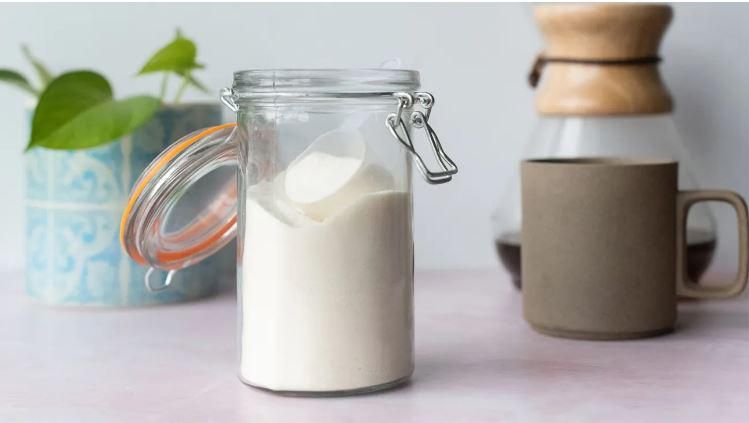Collagen also is able to keep your skin elastic to lower the appearance of wrinkles, making collagen supplements a highly popular prospect for people after they enter their thirties.
Not only does collagen's sturdy fibers work as the "glue" of your body, holding together your bones, tendons, ligaments, organs, skin, and muscles, but it even stems from the Greek word "kólla," which translates to "glue" in English.
But this is just the tip of the iceberg when it comes to the facts about collagen that you should be aware of; therefore, let's proceed further.
Collagen Types
In total, there are 16 different types of this integral protein in the human body, with the majority of them falling under the categories of type I, II, or III and each one executing different tasks.
Type I is able to build up skin, bones, tendons, and ligaments, while Type II helps out with making cartilage, the flexible tissue between bones and in your ears and nose, and Type III works towards creating muscles and blood vessels.
Do You Need Collagen Supplements?
By simply consuming a daily diet that is balanced, chances are already high that your body is making enough collagen to suit your needs.
The FDA doesn't regulate collagen supplements. Therefore, the sellers that make them don't have to prove that they work. But they are typically safe and don't have side effects.
When purchasing collagen supplements, seek ones with these terms in the ingredients section: collagen hydrolysate, hydrolyzed collagen, orcollagen peptides.
Taking collagen peptides — also known as hydrolyzed collagen or collagen hydrolysate — can help prevent unwelcome health woes by replenishing some of your body's collagen supply.
Potential Skin Benefits
Skin health is the single most popular use case for collagen supplements is to support skin health to smoothen out skin and improve one's outward appearance.
Hydrolysis, the process that breaks down the protein into smaller pieces, making it easier for the body to absorb, is used to create hydrolyzed collagen that is utilized in supplements.
The actual dose size of collagen that is needed in order to be effective for the improvement of skin health seems to vary from research study to research study.
But the majority of results that have worked out seem to sit somewhere between the use of 2.5–15 grams per day for eight weeks or longer.
Boosting Your Collagen Levels with Foods
Eating healthy foods is a fabulous way to organically help your body in the creation of more collagen, which is made by your body putting together amino acids called glycine and proline that are found in fish, chicken, beef, eggs, beans, and dairy.
Along with those breakfast, lunch, and dinner staples, other nutrients, such as zinc, copper, and vitamin C, are also contributing factors.
Vitamin C can be received in citrus fruits, tomatoes, and leafy greens, while zinc and copper can enter your body by consuming shellfish, nuts, whole grains, and beans.
Natural food sources of proteins that are building blocks for collagen are chicken, red meat, and bone broth that is made from simmering animal bones in water for one to two days, which pulls collagen proteins out into the broth.
Keep in mind that your body doesn't immediately absorb it right into your skin or joints because it first has to break it down into amino acids that assist with building tissue.
Collagen Creams
Don't be too quick to assume that skin creams with synthetic collagen will be an effective way to increase the collagen protein in your body.
What is actually happening is that they are adding a protective barrier to your skin and are stopping water loss, but they don't raise the amount of collagen in your skin.
What Disrupts Our Collagen Levels?
Aside from getting older, the other enemies of collagen that will lower its levels include smoking, sugar, and sunlight; in fact, getting too much exposure to ultraviolet light causes collagen fibers to unravel, leading to wrinkles caused by sun damage.
A multitude of the chemicals that appear in cigarette smoke can damage collagen, causing the skin to not only wrinkle up but also sag.
Sugar mixes up the fibers in collagen and causes them to cross-link and get tangled up, making skin have less elasticity over the course of time.
Collagen as We Get Older
Unfortunately, as we get older, our bodies create less collagen, and being that there is no way to measure the amount we lose, we can surely feel the painful symptoms in the form of weakened muscles, joint pain, stiff tendons, and thin skin, or tight ligaments.
Taking collagen supplements can assist in easing these symptoms, but first, be sure to talk to your doctor.

















